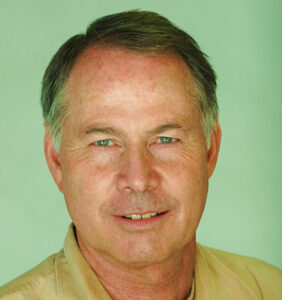
A few years ago I wrote an article which appeared in the “Latest” newsletter on the B vitamins and received popular public response in my office. The article basically differentiated between synthetic man-made B vitamins versus food based B vitamin products. Let’s revisit this subject.
B vitamins help maintain nerve function, skin, hair, liver, mouth and digestive system muscle function. The adrenal glands can be calmed by some of the B complex vitamins and perked up by other members of the B complex. Uneven heartbeat (arrhythmia), weak heart muscle (congestive heart failure), rapid heartbeat (tachycardia), slow heartbeat (bradycardia) and enlarged heart often associated with high blood pressure, all require B vitamins in order to correct the condition without drugs.
A good way to tell if you have a synthetic B vitamin is if the dose of each of the B vitamins is high, such as 20, 50 or 100 milligrams. In the synthetic coal tar based B complex vitamin, the B-1 will be called thiamin mononitrate or thiamin HCl (hydrochloride). These synthetics can be in liquid, capsule, powder, or tablet form.
One well-known writer, Adele Davis, a biochemist and nutritionist, had this to say about B vitamins in her book Let’s Eat Right to Keep Fit written in 1954: “There are times when such tablets are of value; I have recommended their use for SHORT PERIODS (my emphasis) and have taken them myself. No one knows the harm they may do, however, when used as the only source of B vitamins, especially if continued over a long period. When they are taken together with liver, yeast, wheat germ, yogurt, and the most carefully selected diet possible, they probably do little or no harm. In this case they may not be needed unless your requirements are unusually high.” Here is a further quote from the end of the same chapter. “Let us be cautious in feeling secure that a mere capsule of mixed B vitamins will supply the body’s requirements.”
Interestingly enough there is a whole food B vitamin supplement that has been on the market since 1934 that contains among other things liver, nutritional yeast, rice bran and wheat germ. It is interesting that this product preceded Adele’s book by 20 years. It is also interesting that Adele would write letters to the founder of the company that made the 1934 whole food B vitamin product. She would write to seek advice on how to handle her tougher nutritional cases. What is even more interesting is that almost all of the B vitamin products sold on the market today contain none of these whole food concentrates but instead are made from chemically manipulated raw materials such as coal tar. It is also recommended that these manmade synthetic B vitamins be taken long term. Such products are, of course, cheap to produce and can still be called “natural” because coal tar is natural.
At our office we sell two whole food concentrated B vitamins. Long term taking one or two each a day works wonders. One of the B supplements is Cataplex B. The other is Cataplex G. G has a relaxing effect on the body. B has a tonifying effect. Cataplex B also strips acid wastes from muscles, and you can see the value of this in a chiropractic office. There is another whole food B we sell from another company that is pretty good. It is called Biostress B. The B vitamins help the nervous system and the body deal with the effects of more easily. You might ask yourself what kind of B vitamins are you using. It is interesting to see the difference in muscle testing between the synthetic and the whole food concentrated product.
Dr. Mike Spearman

